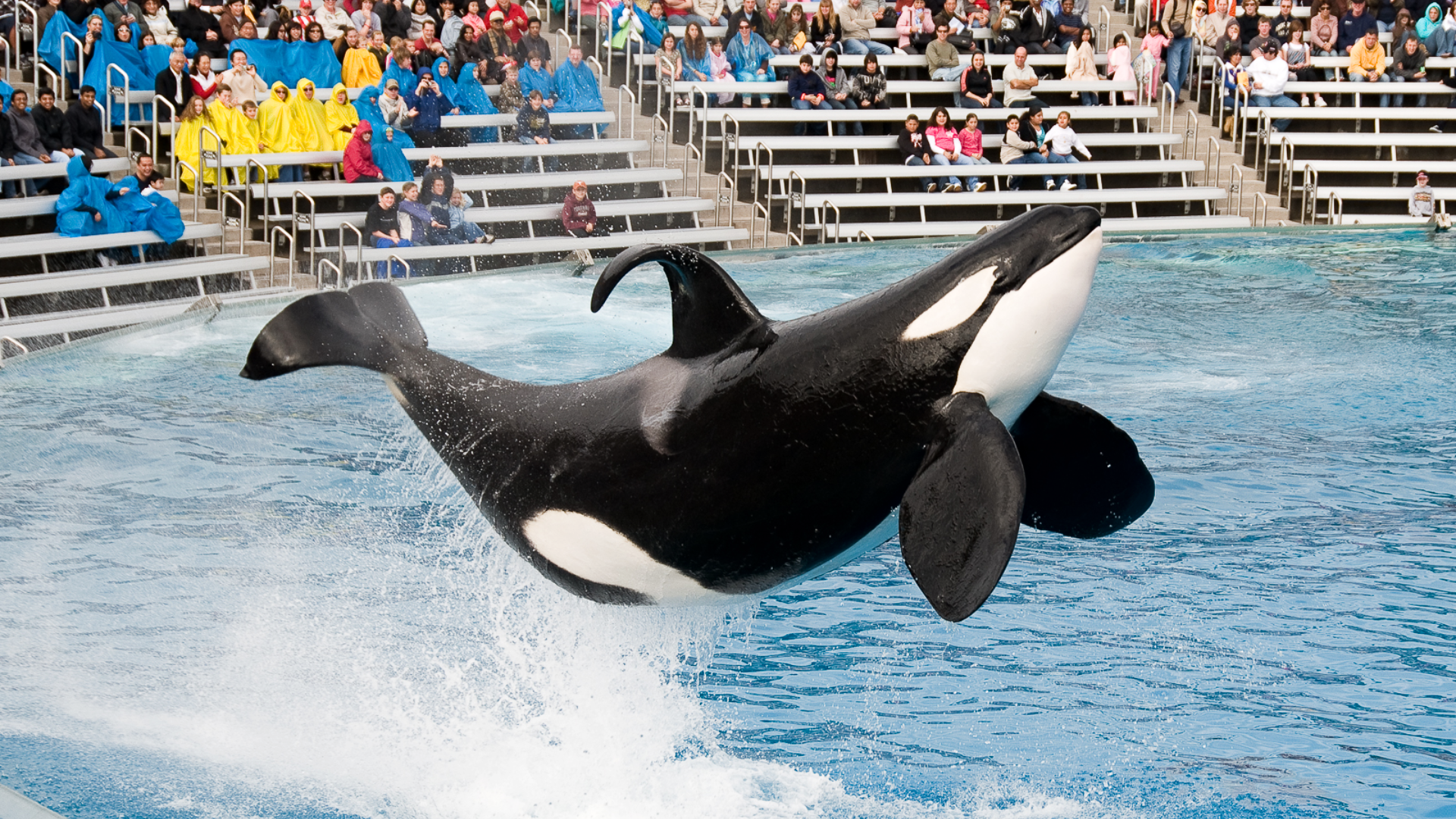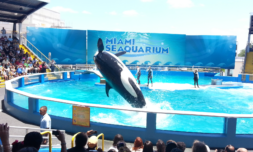The SWIMS Act, introduced in January of this year, may finally come into force in the US, ensuring a better life for captive cetaceans and pulling a plug on any such in future.
For decades, the cruelty of confining some of the world’s most intelligent creatures to tiny tanks for human amusement has raged as one of the most controversial animal welfare debates.
Haunting footage of whales smashing their bodies against concrete walls and separating mothers from calves fueled a rising tide of outrage.
Now, that tide may finally crest with the introduction of landmark federal legislation – the Strengthening Welfare in Marine Settings (SWIMS) Act.
This multifaceted bill represents what could be the decisive blow in battles spanning generations to liberate whales and dolphins from captive entertainment.
How activism brought a multi-billion dollar industry to its knees
The battle to end whale captivity kicked into blistering overdrive in 2013 when the documentary ‘Blackfish’ showed shocking footage exposing the psychological torment and public dangers behind SeaWorld’s orca exhibitions. Attendance plunged as corporate sponsors distanced themselves amid protests.
Despite an overwhelming outcry from animal rights activists, including a deluge of over 120,000 emails and letters from PETA supporters, as well as hundreds of protesters – including the actor Pamela Anderson – gathering at the Long Beach Convention & Entertainment Center for the California Coastal Commission hearing, the commission ultimately voted to grant approval for SeaWorld’s proposal to construct a new orca enclosure in San Diego.
However, this approval came with a crucial condition: one of the commissioners successfully amended the plan to mandate a ban on any further breeding of the orcas. This combination of public pressure led to the once-unthinkable: SeaWorld finally announced in 2016 it would end its orca breeding programs.
However, that hard-won concession contained loopholes wide enough for a whale to swim through. SeaWorld’s policy doesn’t extend to its parks outside California, nor does it stop the company from continuing to breed belugas or other whales. And without an overarching federal law, a new marine park could simply resurrect orca shows in the future.
BREAKING: A termination notice has been sent from the Miami-Dade mayor’s office to the Miami Seaquarium. It’s official: the County is ending their lease. The Miami Seaquarium’s nearly 70 year existence is coming to an end. As promised.
— Phil Demers (@walruswhisperer) March 7, 2024
The bill that could end whale imprisonment for good
Recognizing these limitations, a bipartisan coalition of lawmakers introduced the SWIMS Act in January 2024, led by Reps. Adam Schiff (D-CA), Jared Huffman (D-CA), Suzan DelBene (D-WA) and Sen. Ron Wyden (D-OR).
It will prohibit wild capture of whales for public display, ban breeding of orcas, belugas, pilots and false killer whales at any facility and UK block imports or exports of those four species for entertainment.
‘Holding orcas, belugas, pilot whales, and false killer whales in captivity is inhumane. These intelligent and amazing animals belong in the ocean – not in small concrete tanks,’ stated David Phillips, Director of the International Marine Mammal Project at Earth Island Institute.
Critically, the legislation does not require remaining captive whales to be immediately released into the wild, which could be traumatic. Instead, it allows for them to be rehabilitated and retired to more naturalistic seaside sanctuary environments as they become available.
‘There is ample proof of how damaging it is to hold these amazing beings in concrete tanks, just to perform tricks for entertainment and corporate profit,’ Phillips says. ‘Passage of the SWIMS Act would help end this cruelty.’
Inouk, one of the last orcas in France, has died at Marineland Antibes, just 2 days before controversial orca shows were set to resume. pic.twitter.com/p54sfYgaNw
— BNO News Live (@BNODesk) March 28, 2024



















